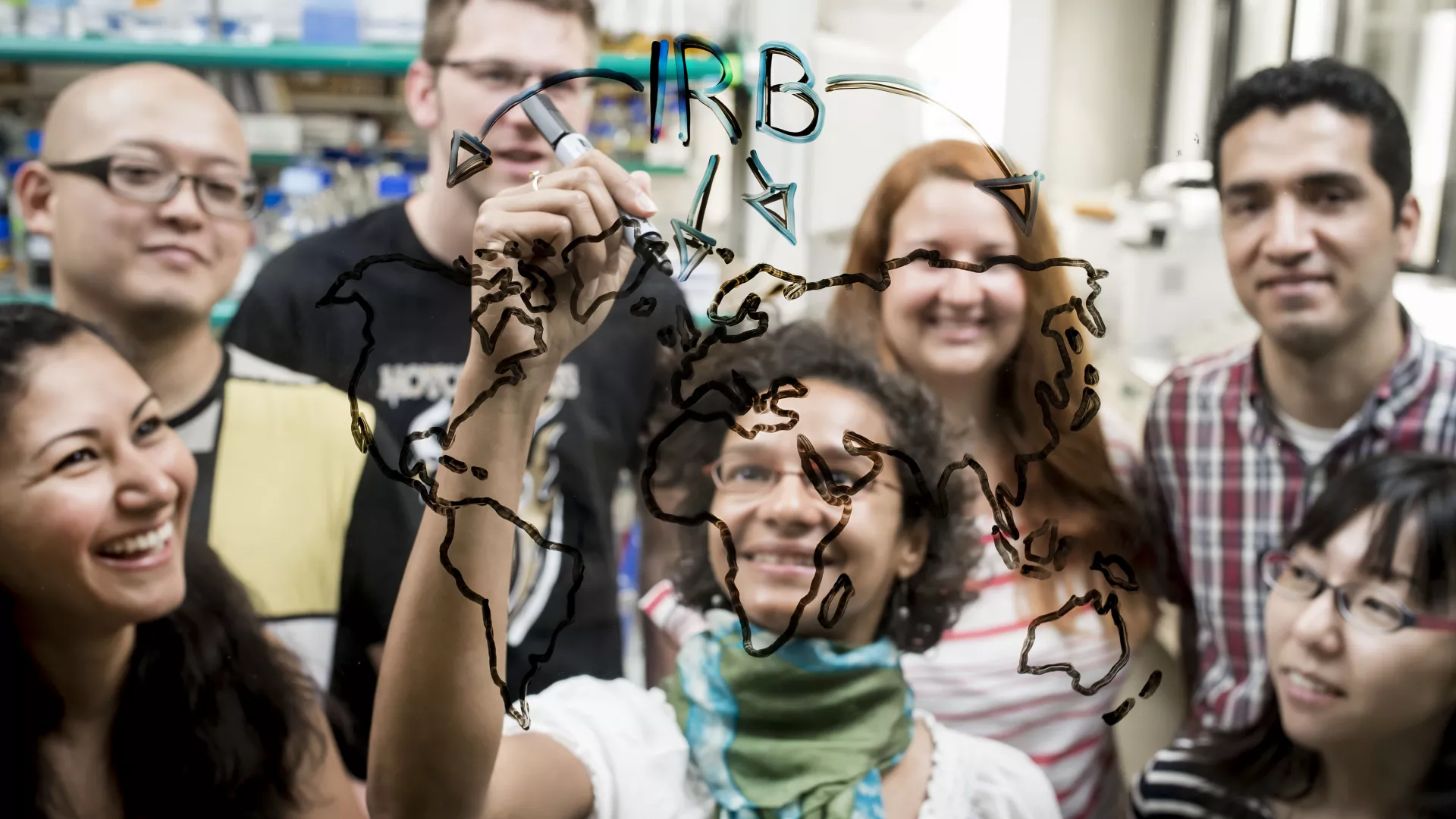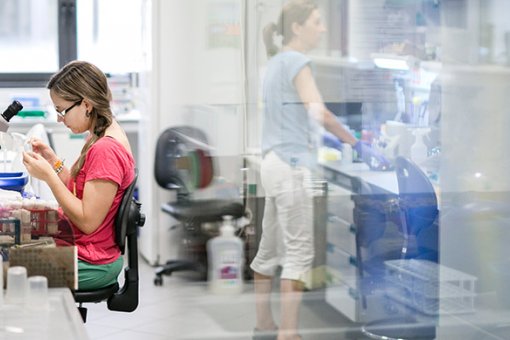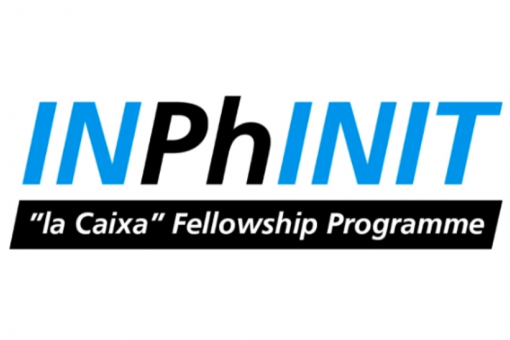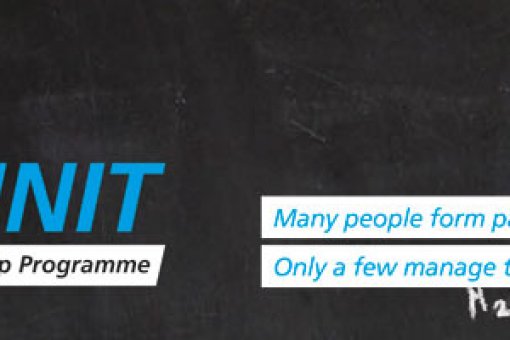Led by IRB Barcelona, ADAPTMET is a new European initiative aimed at advancing our understanding of metastasis by training sixteen researchers specialised in this field. As a continuation of the successful Evomet project, ADAPTMET seeks to push the boundaries of research. The Growth Control and Cancer Metastasis lab, led by Dr. Roger Gomis is offering two 3-year PhD fellowships for young scientists from the national and international community who wish to undertake a doctoral degree in Biomedicine. We encourage applications from highly motivated graduates with outstanding qualifications in biology, chemistry, biochemistry, physics, pharmacology, computational biology or related fields. Successful candidates will join research groups headed by top-level scientists and will carry out their research in cutting-edge fields of biomedicine in a stimulating environment.
For more information visit the official Adaptmet website.
ONLINE APPLICATION
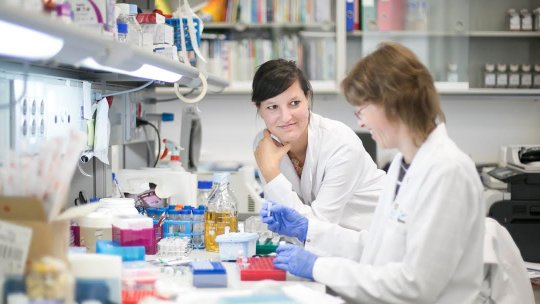
A challenge in cancer research
Cancer metastasis—the spread of cancer cells from the primary tumour to other organs and tissues—is responsible for more than 90% of deaths related to this disease, making it one of the most pressing challenges in oncology. Despite advancements in cancer treatments, metastasis remains poorly understood and difficult to treat. ADAPTMET aims to address this unmet medical need by focusing on the mechanisms that enable cancer cells to adapt and spread, with the ultimate goal of transforming therapeutic approaches and improving patient care.

Dr. Gomis stressed the importance of the project: “By exploring the fundamental mechanisms that determine how cancer cells adapt to new environments, our goal is to identify new pharmacological targets and treatment strategies that can effectively combat metastasis. This project builds on the success of Evomet and takes a step further by incorporating the latest scientific advancements and cutting-edge methodologies.”
The ADAPTMET project addresses metastasis from four key scientific angles, each fundamental to understanding this complex disease:
Cell fate: The project's approach addresses how cancer cells coordinate various cellular functions to facilitate metastasis. Understanding how cells control their fate in response to changing environments could reveal new therapeutic strategies.
Environment: Metastasis involves complex interactions between cancer cells and their environment, including the immune system and surrounding tissue. The goal is to decipher how these interactions influence cancer progression.
Latency: Many metastatic cells can remain inactive for long periods before reactivating. Adaptmet focuses on understanding the mechanisms behind this latency and subsequent reactivation, which is crucial for improving early detection and treatment.
Expansion: This part of the project examines how metastasis expands and becomes resistant to therapies, highlighting pathways for new therapeutic interventions.
Training and empowering future leaders
One of the cornerstones of ADAPTMET is its commitment to training the next generation of cancer researchers. The project offers a unique doctoral programme designed to equip 16 young scientists with the technical expertise and transferable skills necessary for a successful career in academia or industry. Through a combination of training events, the researchers will have access to direct mentoring, hands-on experience with cutting-edge technology, and a comprehensive programme that includes communication, project management, and professional development.
The estimated annual gross salary for the fellow will range between €30,000 and €33,000.
Eligibility
Adaptmet will recruit prospective talented researchers of any nationality, gender, culture, religion, sexual orientation, or age to undertake a PhD in cancer research. To be eligible for an Adaptmet fellowship, applicants must:
- Comply with the mobility rule, meaning that they must not have resided or carried out their main activity (work, studies, etc.) in the country of the recruiting beneficiary for more than 12 months in the 3 years immediately before the recruitment date.
- Be doctoral candidates: at the time of recruitment by the hosting institution, candidates must not be in possession of a doctoral degree. Researchers who have successfully defended their doctoral thesis but who have not yet formally been awarded the doctoral degree will not be considered eligible.
- Fulfil the requirements to be able to enrol in a doctoral programme at the hosting institution/country, and, if applicable, the specific eligibility requirements at the hosting institutions.
Submit a complete application within the submission deadline through the APPLICATION PORTAL
How to apply
Please apply through the APPLICATION PORTAL and provide the following information (in English)*:
- Personal information such as your first and last name, gender, nationality, and contact details.
- Curriculum vitae.
- Motivation letter (maximum 2 pages) highlighting your research experience and academic achievements and explaining why you are interested in Adaptmet and in a particular research project.
- A scanned copy of certified academic records. These documents must show the grades attained in exam periods and evidence that the required degree will be obtained by the expected time of recruitment if it has not already been awarded.
- Any additional files considered relevant to the application.
- At least two recommendation letters from university lecturers or scientists who are familiar with your academic work and who can judge your potential as a predoctoral researcher. Applicants will be responsible for ensuring that referees submit these letters.
- A summary of any work experience.
For more information, please, contact Adaptmet helpdesk.
Selection procedure
An Evaluation Committee will appraise eligible applications both in the remote evaluation stage and in the interview stage. This committee will include external members and representatives of group leaders at IRB Barcelona. The evaluation will be independent, impartial, objective and free of conflicts of interest, and the selection will be open, efficient, transparent, fair, and merit-based. The PhD Advisory Committee will oversee the remote and interview stages of the selection process.
Applicants will receive continuous support from the Academic Office through the IRB-TARGET helpdesk (email, phone), which will notify them of the outcome of the preselection. The candidates with the highest scores will be invited to IRB Barcelona for an interview. Those who do not pass the threshold established will be excluded from further consideration. Candidates who do not pass this evaluation will be informed why and will be provided with the instructions to follow to start a redress procedure.
Short-listed candidates will receive an invitation to a three-day interview process held at IRB Barcelona. Teleconference interviews will be used only for candidates with prior commitments that cannot be rearranged and that thus prevent them from travelling to Barcelona.
Offers of admission will be made to the successful candidates shortly after the interview period. Candidates positively evaluated but with an insufficient score to receive a fellowship will be put on a reserve list to cover possible renunciations and future positions.
The list of awardees will be published on the IRB-TARGET section of IRB Barcelona’s website. Awardees will receive a formal invitation letter.
Calendar
Call opening: 15 November 2024
Deadline for candidacies: 10 January 2025, 22:00 CET
Deadline for referees: 13 January 2025, 15:00 CET
Remote pre-selection: 3 February 2025 – This date marks the deadline for Group Leaders to submit their lists of preselected candidates. However, final validation will be carried out by an external committee later.
Group Leader Panel presentations: 27 February 2025
Interviews at IRB Barcelona: 3-4-5 March 2025
Notification to candidates: 14 March 2025
Start date of fellowships: from September 2025
For enquiries about the application process, please contact the Adaptmet helpdesk.
Useful information for applications
For more information visit the official Adaptmet website.
The DN Marie Skłodowska-Curie Programme offers highly competitive and attractive salary and working conditions. Each fellowship includes the following:
- Monthly living allowance:3,400 euro/month; this amount is then adjusted through the application of a country correction coefficient to the living allowance of the country in which the researcher is recruited. The country correction coefficients are indicated in Horizon Europe MSCA Work Programme 2023-24 version adopted on 6 December 2022 (European Commission Decision C(2022) 7550)(see attachment below).
- Monthly mobility allowance: 600 euro/month.
- Monthly family allowance, if applicable and depending on the family situation: 660 euro/month.
All researchers will be recruited under an employment contract that includes social security coverage.
The living allowance is a gross EU contribution to the salary costs of the researcher. Consequently, the net salary results from deducting all compulsory (employer/employee) social security contributions as well as direct taxes (e.g. income tax) from the gross amounts. The rate indicated here is for researchers devoting themselves to their project on a full-time basis. The mobility and family allowances are fixed amounts, regardless of the country of recruitment, and may be taxable depending on the country in which the researcher is recruited.
For more details please see the Horizon Europe MSCA Work Programme 2023-24 version adopted on 6 December 2022 (European Commission Decision C(2022) 7550)(see attachment below).
All network institutions are equal opportunity employers and all qualified applicants are considered for employment without regard to race, colour, religion, age, sex, sexual orientation, gender identity, disability, nationality or ethnic origin.
Adaptmet is fully committed to equal opportunities and proactive measures have been implemented. To this end, during the application procedure, candidates will be asked to include information on any career breaks, and these will not be penalized during the selection procedure. In addition, when checking compliance with the mobility rule, the refugee procedure will not be taken into account as a period of residence in the country where the candidate is applying. When all scores and evaluation criteria are equal, preference will be given to candidates from under-represented groups, for example women, and candidates with disabilities or those from refugee backgrounds.
